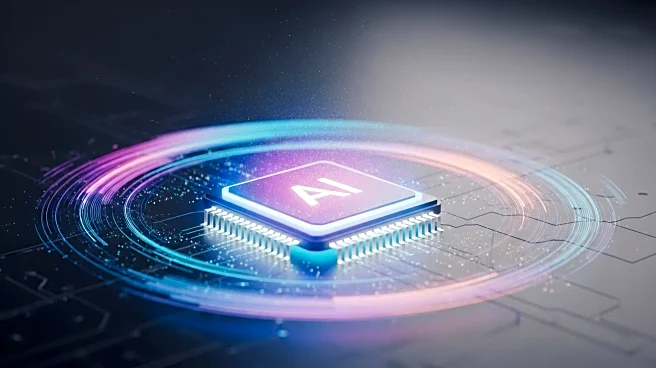What is the story about?
What's Happening?
OpenAI has released a new benchmark called GDPval to assess the performance of AI models on economically valuable, real-world tasks across 44 different jobs. This initiative aims to provide evidence-based evaluations of AI's capabilities in the workplace, countering the perception that AI investments often yield minimal returns. The benchmark focuses on tasks from industries that significantly contribute to the U.S. GDP, such as real estate, government, manufacturing, and finance. Professionals with an average of 14 years of experience from these sectors were recruited to design tasks and provide human-written examples for comparison. The evaluation involved expert graders who assessed AI-generated deliverables against human-produced ones, focusing on quality and accuracy.
Why It's Important?
The introduction of GDPval is significant as it addresses the gap in existing benchmarks that typically focus on abstract academic problems rather than practical workplace tasks. By evaluating AI models on tasks that are integral to high-wage roles, OpenAI aims to demonstrate AI's potential to enhance productivity and efficiency in various industries. The findings suggest that AI models are approaching the quality of human experts in certain tasks, which could lead to increased adoption of AI in the workplace. However, the report also highlights that AI cannot fully replace human workers, as many jobs involve complex, judgment-heavy tasks that go beyond routine operations.
What's Next?
As AI models continue to improve, businesses may increasingly integrate AI into their operations to handle routine tasks, allowing human workers to focus on more creative and complex aspects of their jobs. This shift could lead to changes in job roles and responsibilities, necessitating new skills and training for the workforce. Stakeholders, including industry leaders and policymakers, may need to consider the implications of AI adoption on employment and economic structures, ensuring that the transition benefits both businesses and workers.
Beyond the Headlines
The development of GDPval also raises ethical and cultural considerations regarding the role of AI in the workplace. As AI takes on more tasks, there may be concerns about job displacement and the need for policies that support workers in transitioning to new roles. Additionally, the reliance on AI for decision-making could impact workplace dynamics and the value placed on human judgment and creativity. These factors will likely influence ongoing debates about the future of work and the integration of AI into society.















